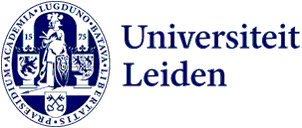
Alisa van de Haar: ‘People with linguistic skills have always played a very important role in society’
Who was professionally involved in language between 1550 and 1650? And what were the financial returns of this language sector? Assistant Professor Alisa van de Haar has received an ERC Starting Grant to map out the situation in Northwest Europe between 1550 and 1650.
Interpreter, journalist, or AI specialist: after graduating, students of French Language and Culture end up in all kinds of language-related positions. Yet Van de Haar is still regularly asked what her students can do with their degree. ‘Even our own students sometimes find it difficult to articulate the value and importance of their education,’ she says. ‘Meanwhile, we see that our alumni are pursuing incredibly valuable professions that entire sections of society depend on and that are partly what drives the economy.’
Mapping the entire language sector
This gave her the idea of investigating the historical background. ‘With my ERC project, I want to show that people with language skills have always played a very important role in society.’ She focuses specifically on northwestern Europe from 1550 to 1650, when rapid growth in the printing industry, language education, and administrative bureaucracy created opportunities for people with linguistic talents, while religious developments changed the position of vernacular languages: Protestants generally had a different attitude to texts in the vernacular than Catholics.
What is new about Van de Haar's research is that she will be looking at all people who worked with language, rather than focusing on a single professional group or guild. ‘In practice, you see that all these professions were closely linked. For example, French teachers were also translators. Or they first worked as secretaries and then as librarians.’ Van de Haar refers to all these different language-related professions collectively as the ‘language sector’. ‘By bringing them together, you can highlight the importance of linguistic knowledge.’
Women, guilds, money, and representation
Another striking feature when looking at the language sector in general is the presence of women. Van de Haar: ‘One of my central hypotheses is that language skills offered women the opportunity to do intellectual work. They couldn’t go to university, but we know that literacy among women was very high in the Low Countries, for example. Women regularly worked as French teachers, and maids who spoke different languages were in high demand because they could also interpret. Until now, however, research has mainly focused on individual women who stood out. One of the PhD students will therefore take a closer look at their position in general. That is one of the things I like most about the project: having the opportunity to put together and supervise a team, including PhD students.’
That team will also include a PhD student who will focus on guilds associated with the language sector. ‘It is likely that many language professionals have remained somewhat overlooked because they never united in a single guild, as textile workers did,’ Van de Haar explains. ‘We do sometimes see a guild for secretaries or one for language teachers, but these associations vary greatly from city to city.’
A postdoctoral researcher will examine in greater depth the finances of the language sector and what individuals could earn in it, while Van de Haar's own focus will be on the representation of language professionals. ‘I want to know how they described themselves, whether they saw themselves as part of a larger whole, and whether they also used their language skills to promote themselves,’ she explains. ‘As a team, we will also create a database of all these language professionals in northwest Europe, so that we can get a better overview of who worked where.’ And who knows, her current students may also find inspiration for their future careers.
